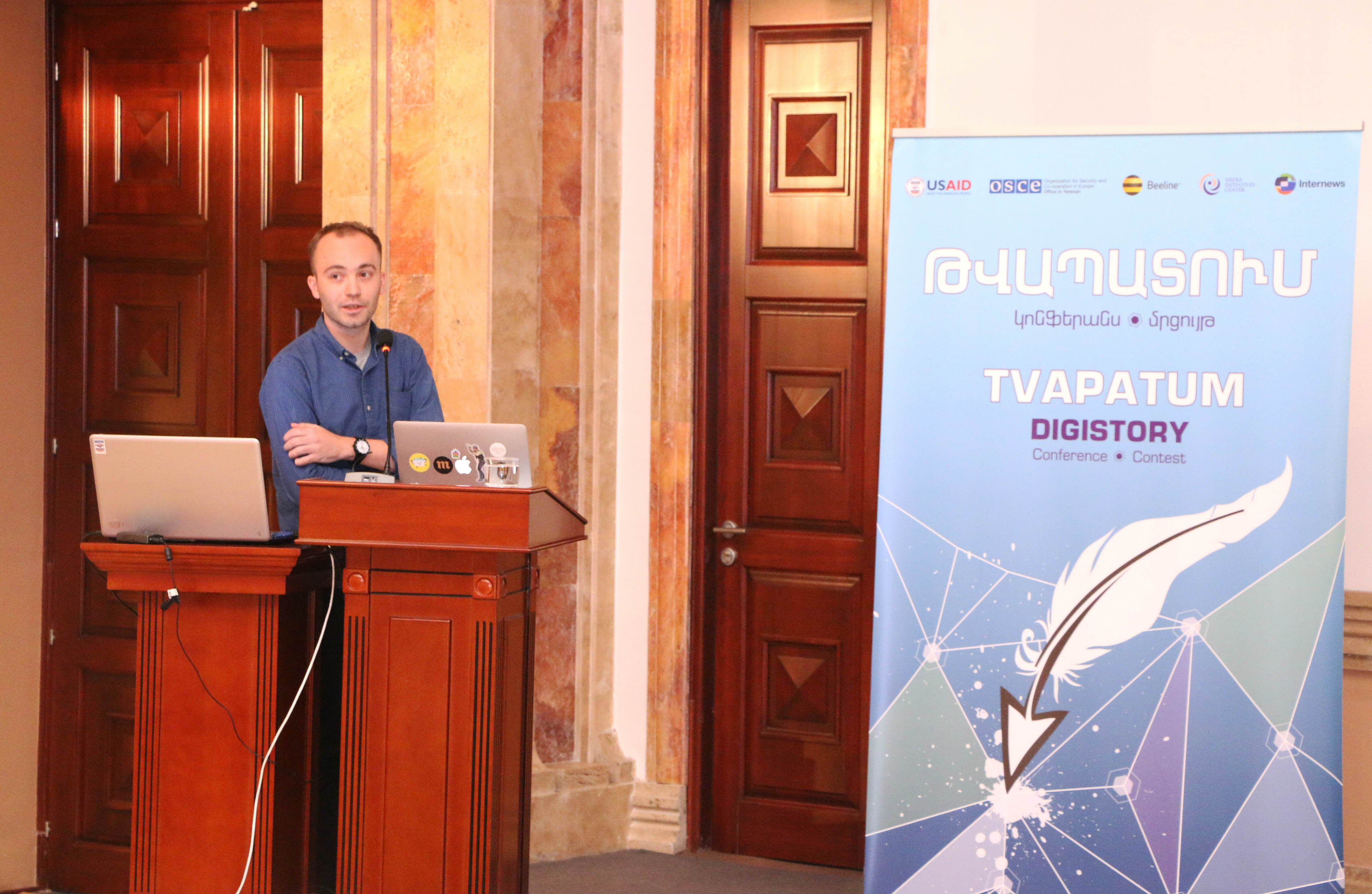A Meduza.io special correspondent who’s been covering the Islamic State for several years, Daniil Turovsky, sharing his experience in conflict zones and hot spots around the world, speaks frankly: he doesn’t consider himself a war correspondent; he doesn’t cover the war itself but writes about those who, as a result of a war, find themselves in border towns and live next to a war.
“The war is taking place a few steps away, it’s very hard for the people who live in these situations, but as cynical as it may sound, I have to say, here is where the best journalism human stories are born,” says Turovsky.
Turovsky has also been a correspondent for Russian newspaper Kommersant, Esquire, Openspace, and Bolshoi Gorod (“Big City”); the editor of the Russian magazine Afisha (“Poster”); and special correspondent for Lenta.ru. He is currently covering hackers and issues related to the LGBT community in Russia. In 2015, he received the GQ Journalist of the Year Award.
In covering the Islamic State, Turovsky has been to Georgia’s Pankisi Gorge, Tajikistan’s border towns neighboring Afghanistan (the Islamic State has gotten a strong foothold in Afghanistan), and in Turkey-Syria border towns.
He says that he communicates and is in contact with members of the Islamic State; he was able to reach their trusted social networks.
“We communicate with parties [to the conflict] and that is Meduza.io’s adopted policy. In this case, we communicate with the Islamic State, in order to understand, to know their wishes. If they’ve decided to kill people, why? And that finds its place in the story,” he explains.
Talking about fear, which occurs when working in a conflict zone, when he finds himself in between life and death, Turovsky confesses: “Of course there are times when I tell myself, ‘Oh my god, where have I found myself?’ I’ve been working in these zones for 10 years, and if I had a great sense of fear, if fear was very high in the work, I wouldn’t be able to work and get those stories. That’s what happened in Luhansk, when I illegally crossed the border; that also happened in the Islamic State. Usually those feelings and emotions come much later, but not during work, when you’re gathering the story, speaking with people, analyzing — at that time you forget about fear.”
He thinks that the “risk of success” or the “god of journalism” helps journalists in the most extreme situations, as it helped him in 2014, when he was going to cover the elections in Luhansk. On the border of Luhansk, seeing his Meduza journalism badge, the border guards order Turovsky off the bus, explaining that Latvia is a fascist country and banning his entry to the Luhansk People’s Republic.
“From the buffer area, I returned to Russian territory, constantly thinking, how am I going to be able to cross the border? And that’s when, perhaps, the journalism god came to my rescue. At one of the border eateries, where I had gone to get something to eat, I heard how one person promised another to help him cross the border for 200 thousand rubles. And it’s with him that I illegally crossed the border, of course, without the money — where would I have that kind of money? That section between Russia and Luhansk was one of the most dangerous areas at the time — anyone found in that area was immediately shot,” describes the journalist.
It’s as though he’s talking about a film, when he recalls how they crossed the border.
“Fog, war, an abandoned village, and that man tells me: now you have to get out of the car and simply run quickly without stopping; otherwise, if they catch us, it will be very bad — either we’ll find ourselves in one of Luhansk’s cellars or they’ll shoot us outright, and we ran…,” he says.
On the topic of life insurance for journalists working in conflict zones, Turovsky mentions that Meduza likewise doesn’t have insurance, but it would be nice to have. Life insurance for journalists is lacking also in Russia.
Turovksy goes to conflict zones and works there with the help of fixers, who, as he says, usually act as “bodyguards,” not allowing him to work freely.
“That’s what happened with a fixer in Tajikistan. On the second day I refused his services, since he was constantly prohibiting entry to those places where I was convinced it was necessary to enter, that’s where the story was and that’s where the subjects were,” he says.
Turovsky has worked in conflict areas without a bulletproof vest, though he confesses he needed it when working at both the Turkey-Syria border and Luhansk.
He notes that journalists working at both the border and other areas should know the same thing: to work with different sources and different sides to the conflict, to faithfully cite it all without exaggerating, which is the foundation of journalism and with which they work everywhere.
Turovsky’s next stop is Iraq, where he’ll definitely take a bulletproof vest with him before going.
“There’s a war there now; it would be impossible without it,” says the journalist.
Gayane Mkrtchyan






